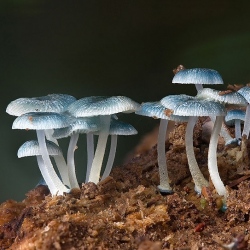
The Amazon contains more species of flora and fauna than virtually anywhere else on earth.
n a report by NZ Herald it was stated that a group of students from Yale University found a species which appears to be happy eating plastic in airless landfills.
The group of students are part of Yale’s annual Rainforest Expedition and Laboratory. Travelling with professor Scott Strobel of the molecular biochemistry lab into the jungles of Ecuador, the mission was to allow "students to experience the scientific inquiry process in a comprehensive and creative way."
Plastic garbage could last indefinitely, meaning that landfills of garbage will continue on possibly for centuries.
But now there may just be the perfect solution.
The group brought back a new fungus with a voracious appetite for polyurethane, which is a common plastic used for many modern purposes, including shoes, garden hoses and other non-degenerating items.
The fungi, Pestalotiopsis microspora, is able to survive on a steady diet of polyurethane alone and, which is even more surprising can do this in an anaerobic (oxygen-free) environment. Perfect for conditions at the bottom of a landfill.
A student named Pria Anand recorded the remarkable behaviour of the microbe, and another isolated the enzymes that allow the organism to degrade plastic as a food source.
Their findings were published in the journal Applied and Environmental Microbiology last year with the conclusion that the microbe is "a promising source of biodiversity from which to screen for metabolic properties useful for bioremediation."
There is now hope for a plastic-free environment in the future.
